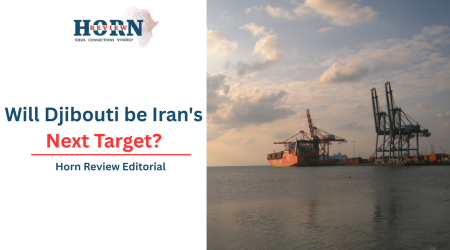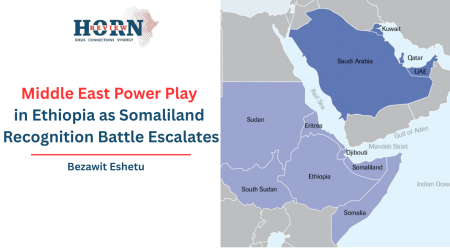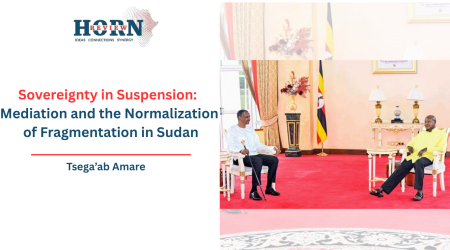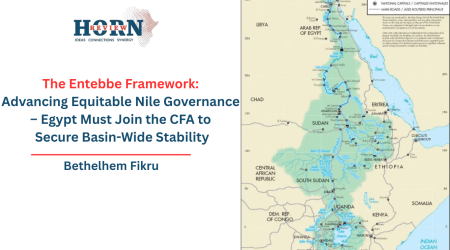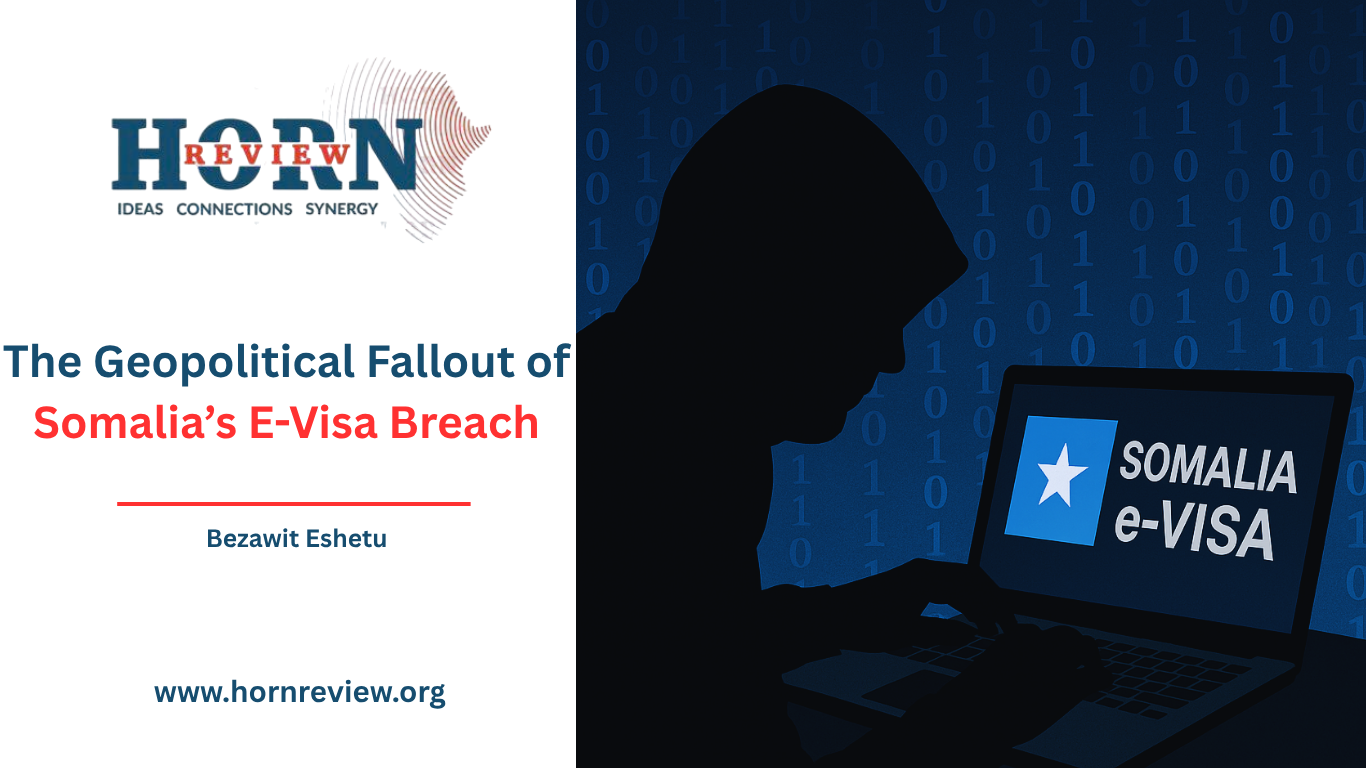
20
Nov
The Geopolitical Fallout of Somalia’s E-Visa Breach
Somalia’s e-visa catastrophe is far more than a technical malfunction. It has crystallized a convergence of governance failures, regional power contests, and the dangerous ways in which digital exposure can translate instantly into physical threat. When the system launched on September 1, 2025, Mogadishu presented it as a step toward modernization and centralization, a tool to streamline travel and bolster revenue collection.
Yet on November 11, reports emerged that the platform had been breached, compromising the personal information of at least 35,000 applicants, including passports, photographs, dates and places of birth, marital status, home addresses, email contacts, and biometric identifiers. When the U.S. Embassy in Mogadishu described these reports as credible and urged affected individuals to assume compromise, what might have remained a bureaucratic embarrassment instead became a full-blown national security crisis.
The confirmation triggered immediate political ramifications. Governments and carriers issued urgent guidance; foreign missions warned their citizens; and aviation operators altered procedures for routes into Somaliland and Puntland as confusion over jurisdiction intensified. The breach did more than disrupt travelers; it punctured confidence in the Federal Government of Somalia’s ability to protect the very individuals it seeks to attract: diplomats, aid workers, contractors, and investors essential to Somalia’s political and economic recovery. In fragile environments, security is not only about force protection but about trust, and once trust collapses, it pulls practical consequences with it.
Those consequences surfaced almost instantly. Local and regional reporting, amplified by social media, noted rapid departures and heightened protective measures among foreign personnel in Mogadishu, with some outlets citing significant drawdowns of diplomatic and intelligence staff in the immediate aftermath of the leak. Whether every movement stemmed directly from the breach or from broader precautionary repositioning, the effect was the same: a demonstration of how digital vulnerabilities can become real-world risks in a country where violent non-state actors remain highly capable. A database mapping identity, travel histories, and personal networks is not a trove of trivia but a targeting matrix.
Al-Shabaab’s resilience makes this matrix particularly dangerous. The group has spent the past year reclaiming terrain and mounting high-profile attacks that expose lasting intelligence gaps within Somali institutions. In such a context, access to the identities and itineraries of foreign officials, development workers, or regional partners is more than an opportunity for harassment; it is fuel for precision targeting, surveillance, extortion, and propaganda. Casting victims as “infidel collaborators” could simultaneously enhance recruitment and deter foreign engagement, especially as ATMIS forces draw down. The breach therefore strengthens jihadist actors not only tactically but psychologically, reinforcing narratives of state incompetence and foreign vulnerability.
The implications of the leaked e-visa records extend beyond counterterrorism, revealing connections between Somalia’s internal challenges and regional proxy dynamics. Investigative reporting indicates that Colombian mercenaries transited through Somali airports, such as Bosaso and Mogadishu, before joining the Rapid Support Forces in Sudan. This movement aligns with reports of Latin American ex-combatants entering African conflicts via private military contractors linked to Gulf states.
The situation unfolds amid strategic competition in the region. The Sudan conflict has highlighted recruitment networks involving Gulf actors, despite official denials regarding personnel movements through Horn airfields. Whether these actions stem from state policy or independent firms, they contribute to an expanded conflict footprint and deeper militarized connections across borders. Thus, the e-visa breach illustrates a cybersecurity issue and a critical window into proxy warfare from Mogadishu to Darfur.
For Egypt the breach is more than an intelligence embarrassment. Cairo has strategic stakes in Sudan’s stability because of downstream Nile water security and longstanding political influence in Khartoum. The visa records, if they accurately show foreign fighters transiting Somalia before joining the RSF, create a plausible pathway by which proxy networks could affect Nile Basin politics indirectly. That raises two concrete risks for Egypt. One, reputational and diplomatic: Cairo may press Mogadishu for explanations and tighter controls, which could reshape bilateral ties and regional alignments. Two, security: the normalization of mercenary and contractor flows through Horn airfields weakens regional airspace integrity and creates operational blind spots for states trying to protect strategic assets like naval chokepoints and water infrastructure
Politically the fallout will likely be most acute in Somalia. The exposure of transit routes and passenger manifests can undercut Somalia’s claims of limited oversight or control, even if government actors were unaware. That exposure damages trust with humanitarian agencies, donors, and regional partners and could prompt external powers to increase pressure on Somali institutions, including calls to tighten airspace controls or condition aid on security reforms. The immediate administrative vulnerability now risks becoming a geopolitical lever that external actors will exploit to advance security objectives in the Red Sea and the Horn
The crisis has strengthened Somaliland’s separatist posture. The self-declared republic moved to assert de facto sovereignty by declaring Somalia’s e-visas invalid for entry into its territory and by tightening control over its airspace and key airports, including Hargeisa and Berbera. Effective November 10, 2025, this policy directly challenges Mogadishu’s “one Somalia” doctrine, which reserves visa issuance for the central government. Somaliland frames the move as a form of “digital secession,” portraying its institutions as relatively stable compared with what it alleges is mismanagement by the Federal Government of Somalia.
Senior Somaliland officials have engaged international partners to emphasize independent border controls and to press for visa-on-arrival arrangements at their IATA-recognized airports, which are served by carriers such as Fly Dubai and Ethiopian Airlines. These unilateral measures advance Somaliland’s political objectives and risk encouraging other regions, including Jubaland, to harden territorial claims, particularly in an environment where increased Kenyan involvement in border security could convert digital vulnerabilities into strategic territorial leverage.
Beneath these layers lies a set of governance and technical failures that are concrete, identifiable, and long overlooked. Analysts and investigators point to weak encryption, inadequate monitoring, and the hurried procurement and deployment of a national system without rigorous penetration testing or independent audits. These shortcomings unfold within a federal landscape where Somaliland and Puntland resist centralized controls and where private contracting and revenue capture muddy accountability. The result is a brittle architecture: a single, overloaded point of failure entrusted with sensitive data in a country without the institutional resiliency to safeguard it.
Addressing the e-visa system appears, on the surface, to be a technical challenge that entails implementing stronger encryption, multifactor authentication, independent audits, and robust incident-response protocols. However, the more profound solution is political. Somalia requires procurement reforms that enhance transparency, establish clear lines of authority between federal and regional institutions, and engage diplomatically to prevent humanitarian and commercial corridors from becoming bargaining chips. Trust, once eroded, must be restored not only through technological measures but also through effective governance.
The breach of Somalia’s e-visa system serves as a cautionary tale, illustrating that in fragile states, the digital landscape is intricately linked to geopolitical realities. A database leak in Mogadishu is far from a mere privacy violation; it acts as a force multiplier for insurgents, creates pathways for mercenary networks, and serves as a diplomatic irritant that could alter alliances. To regard this incident simply as an isolated IT failure would be to underestimate its broader implications. Unless Somalia and its partners confront the structural vulnerabilities, it reveals, both the nation’s recovery and the region’s stability will remain perilously exposed to future breaches—be they digital, political, or territorial.
By Bezawit Eshetu, Researcher, Horn Review

